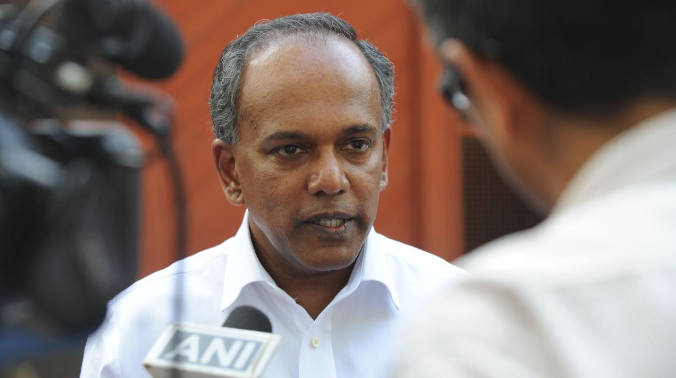The Singapore Police Force (SPF) has a crucial responsibility, according to Home Affairs and Law Minister K. Shanmugam: to enforce the law impartially
The Singapore Police Force (SPF) has a crucial responsibility, according to Home Affairs and Law Minister K. Shanmugam: to enforce the law impartially, without taking sides or targeting specific ethnicities or demographics. He expressed this sentiment during the Police Workplan Seminar and Exhibition at the Singapore Expo on May 12.
“We must not let the Police be caught in social divides, such as race and religion, or in political issues,” Shanmugam stated, highlighting that the Government must address societal fault lines.
He referenced the 2019 Hong Kong protests, where unresolved socio-political issues, such as housing and the cost of living, led to unrest among certain groups. “In such a situation, when the police are called to restore law and order, it becomes very difficult,” he said, adding that the “people versus police” dynamic creates a vicious cycle.
Shanmugam also pointed to the January 2020 Capitol Hill riot, during which supporters of former President Donald Trump stormed the U.S. Capitol after his election loss. He noted that over 140 officers were injured and more than 1,000 arrests were made, yet some media and political figures attempted to downplay the insurrection for their gain.
He emphasized that such political maneuvering can entangle the police in political debates, asserting, “We support the police to be neutral and independent, not to be used for political purposes. Neither should the police be made a victim of politicking.”
Despite the challenges, Shanmugam affirmed that public confidence in the police remains high. However, he cautioned that if genuine allegations of misconduct within the force are not addressed, trust could quickly erode. He mentioned that his ministry has initiated around 78 disciplinary proceedings each year against potentially errant officers, stating, “We investigate all allegations seriously. If any wrongdoing is uncovered, we are the first to take disciplinary action.”
Shanmugam stressed the importance of eradicating misogyny, sexist remarks, and sexual harassment within the police force, advocating for a culture of professionalism and accountability.
He also acknowledged that attacks against the police are becoming more complex, particularly due to the rise of deepfakes and artificial intelligence. Citing a recent incident involving a viral AI-generated photo of an elderly man allegedly being violently restrained by police in France, he cautioned about the potential public outrage that could ensue from such misleading representations.
To combat these challenges, Shanmugam highlighted legal frameworks like the Protection from Online Falsehoods and Manipulation Act, which will help counteract false narratives. “Our officers know that when there are false or unfair allegations, we will act quickly and decisively to tell the truth and stand by the officers,” he affirmed. “We will stand by our officers and defend them.”



COMMENTS